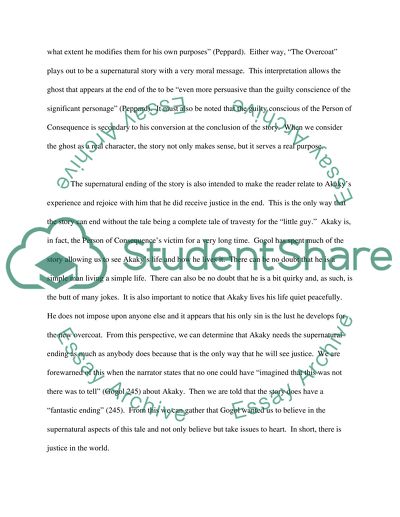Cite this document
(“Nikolay Gogols The Overcoat. The Conclusion Essay”, n.d.)
Retrieved from https://studentshare.org/miscellaneous/1506305-nikolay-gogols-the-overcoat-the-conclusion
Retrieved from https://studentshare.org/miscellaneous/1506305-nikolay-gogols-the-overcoat-the-conclusion
(Nikolay Gogols The Overcoat. The Conclusion Essay)
https://studentshare.org/miscellaneous/1506305-nikolay-gogols-the-overcoat-the-conclusion.
https://studentshare.org/miscellaneous/1506305-nikolay-gogols-the-overcoat-the-conclusion.
“Nikolay Gogols The Overcoat. The Conclusion Essay”, n.d. https://studentshare.org/miscellaneous/1506305-nikolay-gogols-the-overcoat-the-conclusion.


